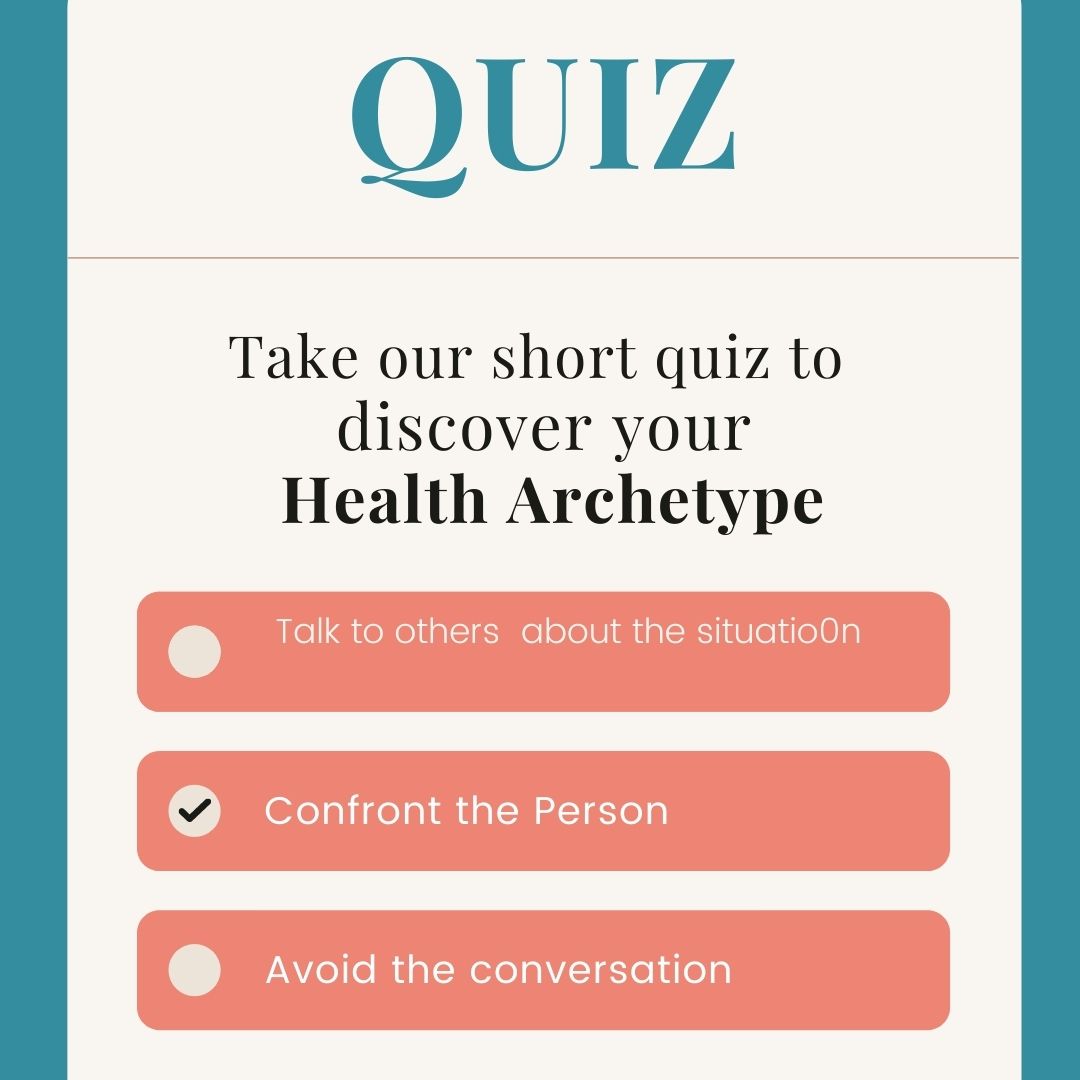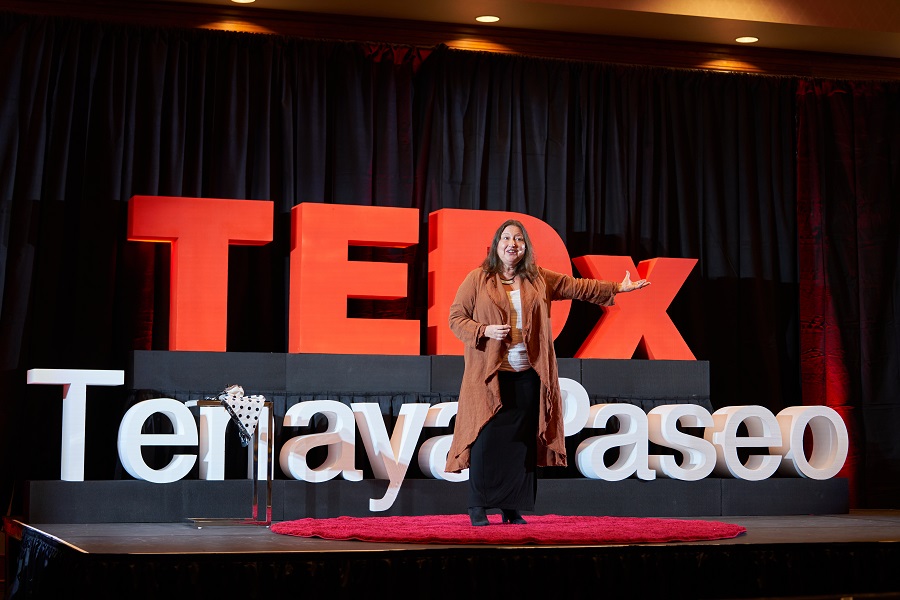
The #1 show for medical practitioners & holistic healers to have heart to heart conversations about their day to day lives.

Manon Bolliger (Deregistered with 30 years of experience in health)
iTunes | Google Play | Spotify | Libsyn | iHeartRadio | Gaana | The Healers Cafe | Radio.com | and many more

Shannon Leggett
Physio and Yoga for Whole Body Health – with Shannon Leggett on The Healers Café with Manon Bolliger
In this episode of The Healers Café, Manon Bolliger, FCAH, RBHT (facilitator and retired naturopath with 30+ years of practice) chats with Shannon Leggett about her innovative practice using both physiotherapy and yoga to treat her clients.
Highlights from today’s episode include:
Shannon Leggett
if I was able to help them treat their chronic stress, help them implement some lifestyle changes, and I would be better at it. Their pain would be better, I would be more effective and an efficient clinician
Manon Bolliger 08:14
Yeah, yeah. And it just comes, you know, to show to how our own self care is essential to really allow our full creativity, like when we’re in the profession of helping others, you know, we don’t always think creativity matters, but it does
– – – – –
Shannon Leggett
And to think about right, like lifestyle management, making changes in you know, diet, sleep, all of that. It’s so much cheaper.
ABOUT SHANNON LEGGETT:
Shannon Leggett, PT, MPT, YT-200 is a licensed Physical Therapist, certified Yoga Instructor, and owner of Shannon Leggett Physical Therapy, PLLC.
Most of Shannon’s 20+ year career has been in NYC, helping thousands of corporate executives and high-level athletes recover from injury. Determined to give her clients the highest quality of care and optimize their outcomes, Shannon developed a unique approach to treatment. She combines her extensive background in evaluation and treatment of musculoskeletal pain with her passion for yoga, to provide care of mind, body, and spirit. Shannon uses her expertise in movement, manual skills, and lifestyle management to help patients climb mountains, cross finish lines, and develop healthy habits which help them transform their health. Her expertise has been featured in Bustle, Insider, Healthline, LIVESCIENCE, Women’s World, Parade, and on podcasts such as Healthy, Wealthy, and Smart and The Heart of Healing: The Healer’s Journey.
When Shannon is not helping clients achieve their goals, you will find her running races in Central Park, teaching yoga classes, volunteering, or hiking somewhere in the world.
Core purpose/passion: I am on a mission to help people live well. The amount of chronic disease in the U.S. is staggering. The sad part is that most of this is avoidable. While there are medications to help, I believe there is a cheaper and more empowering way to go. Lifestyle management is key here. However, people know more about their computers or the stock market then how to care for their bodies. I want to empower people to change their habits to by providing them with education.
Also, I am extremely passionate about normalizing mental health as health care. I faced so much stigma when I was first diagnosed-even from my own medical providers. It made an awful time in my life harder. I made a promise to myself that I would always be honest about my journey and help those struggling so no one should ever have to feel like I was made to feel!.
ABOUT MANON BOLLIGER, FCAH, RBHT
As a recently De-Registered board-certified naturopathic physician & in practice since 1992, I’ve seen an average of 150 patients per week and have helped people ranging from rural farmers in Nova Scotia to stressed out CEOs in Toronto to tri-athletes here in Vancouver.
My resolve to educate, empower and engage people to take charge of their own health is evident in my best-selling books: ‘What Patients Don’t Say if Doctors Don’t Ask: The Mindful Patient-Doctor Relationship’ and ‘A Healer in Every Household: Simple Solutions for Stress’. I also teach BowenFirst™ Therapy through Bowen College and hold transformational workshops to achieve these goals.
So, when I share with you that LISTENING to Your body is a game changer in the healing process, I am speaking from expertise and direct experience”.
Mission: A Healer in Every Household!
For more great information to go to her weekly blog: http://bowencollege.com/blog.
For tips on health & healing go to: https://www.drmanonbolliger.com/tips
SOCIAL MEDIA:
– Linktr.ee | Rumble | Gettr | Facebook | Instagram | LinkedIn | YouTube | Twitter |
About The Healers Café:
Manon’s show is the #1 show for medical practitioners and holistic healers to have heart to heart conversations about their day to day lives.
Subscribe and review on your favourite platform:
iTunes | Google Play | Spotify | Libsyn | iHeartRadio | Gaana | The Healers Cafe | Radio.com | Medioq | Audacy |
Follow The Healers Café on FB: https://www.facebook.com/thehealerscafe
Remember to subscribe if you like our videos. Click the bell if you want to be one of the first people notified of a new release.
* De-Registered, revoked & retired naturopathic physician after 30 years of practice in healthcare. Now resourceful & resolved to share with you all the tools to take care of your health & vitality!
TRANSCRIPT
Introduction 00:00
Welcome to the Healers Café. The number one show for medical practitioners and holistic healers, to have heart to heart conversations about their day to day lives, while sharing their expertise for improving your health and wellness.
Manon Bolliger 00:17
Welcome to the Healers Café. And today I have with me Shannon Legett, and she’s a licensed physical therapist, a certified yoga instructor, and owner of Shannon Legett Physical Therapy. And she has had her career for 20 plus years in New York City, helping 1000s of corporate executives and high-level athletes recover from injury. Oh, you’re so much here to share. But I think I’m gonna just go straight to…yeah, how, first of all, how, what got you into this? And what made you interested in this? And then what shifted and changed as you were combining these two passions?
Shannon Leggett 01:12
Well, first of all, I wanted to thank you so much for having me today, to share a little bit about my journey, both from a business perspective and a healing perspective. My business model is very much connected to my own healing journey. So, I’m excited to share a little bit about that with you. I have been a physical therapist since 1999. You know, I kind of got into the profession, because I was encouraged by my mom, that I had good hands. And that it could be something that I did when I was married and had babies, right. It’ll be like a lovely little like side gig. So, then I started turning 35. And there was like no marriage or kids in sight. And I was like, oh my goodness, like, do I even like, do I even like this, like, what am I doing? I had kind of like, kind of like a midlife crisis, although it wasn’t a midlife, it was like what am I really doing with my life, and is this the direction that I wanted to be heading in. And at this point I’ve been practicing for over a decade, in outpatient orthopedic clinics, they were insurance based. So, it was very much surrounded by numbers and productivity, not necessarily delivering quality care. And I’m the type of person that wants to deliver as much quality care as I possibly can. And I found myself burnt out like time and time again, in those insurance based medical models. And I just didn’t know, like, I didn’t know what I wanted to do with it. And I knew I needed to make a change and figure out how I could make this career in physical therapy more sustainable, joyful, fulfilling than it was and be healthy myself. And at this point, I had gotten into yoga, I was a very avid yoga practitioner. I am someone who suffers from anxiety and depression. So, anxiety, yoga, rather, has been a very important part of my path. So, I knew what it was like …
Read more...
and what it could do for me. And also, when I…you know, I’m someone that I’m a problem solver, right? I’m a clinician, I want to solve problems. So, I’m like, I’m gonna solve my anxiety and depression. I’m gonna do it. And yes, I went the traditional medical model, but I knew that there was more that I could be doing for myself and on my own. And I started dabbling in nutrition. And I brought more of like, the breathwork, and the meditation from the yoga end of things. And I started paying attention to how I talked to myself, how I felt around certain people, and I just really with all of this, I started to make massive changes for myself, right? And I realized, like, wow, you can feel really good. Like, and I didn’t realize how bad I felt, right? So, then I started kind of noticing a lot of different things with my patients, right? Like they come to me, basically, because they’re in pain. But I’m also the clinician that they spend the most time with sometimes, right? They see me once or twice a week. So, you start to get to know them their medical history, and you know, I was working in midtown Manhattan at this point. So, people are at high stress jobs. It’s a high stress city. And then they’re starting to talk about their gastrointestinal issues and their autoimmune disorders and their fertility issues. And you’re like, wait a minute, like, these people are stressed, and stress is having a big component and big factor, so to speak, in how they heal from pain. And wouldn’t I be a much better clinician if I was able to help them treat their chronic stress, help them implement some lifestyle changes, and I would be better at it. Their pain would be better, I would be more effective and an efficient clinician. So that’s when I started to weave my yoga into things and dabbling in, Hey, these are some things that helped me with my stress, like, let’s see if they’re gonna help Jane Doe. And I started getting really cool results. And those chronic pain patients, those hard-to-treat patients like really started to get better. And I was like, ooo, I’m onto something. And this feels really good. And this feels really right, right, like, because if you start to pay attention to how you feel in certain situations, like oh, this, this is where I need to go. So, I got my yoga instructor certification in 2016. And started reading it a little bit more. But it wasn’t until the pandemic of 2020 where I was furloughed, and realized that I got a really nice break, and I got some rest that I was miserable. I hated it. I hated what I was doing. I hated how I delivered care. I wanted more, I needed more. And I couldn’t look at myself in the mirror anymore. And like I then had a choice, right, I was either going to choose that, or I was going to take a chance on myself and put this package like this powerful package that I had together and go out on my own. And I did in May of 2021, I went full time, and I’ve been treating patients privately in our homes ever since with my integrative model.
Manon Bolliger 06:35
Amazing. Wow. That’s, I mean, that’s definitely courage to do all that, you know, but it’s like, you know, I hate to look at this pandemic as an opportunity. But it was said by several people, it’s an opportunity, and it was an opportunity for bad, but it was also an opportunity for good.
Shannon Leggett 06:56
100% It is not you know, someone who is like go go go by personality, and I never would have given myself that rest. I wouldn’t have. And it was like a forced…it was a forced rest. Yeah. And but I you know, there are people out there. And I think being a mind body practitioner yourself and understanding the connection, right? Like, I think all the work that I’ve done up into that point of paying attention, right? Of how do I feel in this moment, what’s going on internally, I was able to really see the change in myself having that rest. And whoa, like there are things that spark joy, and I am a joyful person. I’m not this cranky, tired, burnt-out human, that the system that I was working in is created. And I wanted more of the joy. I wanted more of the joyful, creative person. But that’s what happens, right? When you come out of chronic stress, you’re allowed to access all of that creativity and that joy. So, it was an opportunity that I use to really kind of transform myself, my health, my happiness. I’m a better clinician for it.
Manon Bolliger 08:14
Yeah, yeah. And it just comes, you know, to show to how our own self care is essential to really allow our full creativity, like when we’re in the profession of helping others, you know, we don’t always think creativity matters, but it does. Because we’re constantly evolving, where we’re adding things, we’ve learned things along the way. Right. So, it’s like, to cooperate all this and, and taking, you know, a pause is one of the best ways to incorporate, you know, all the information that we’re sort of swimming quickly by. But we haven’t just sat with, you know, so, you know, so I think and I’m saying this too, because I’m thinking of what, you know, will happen in the next years to come when there’s going to be I imagine big rewrites about our medical system, or so called health care, which is, you know, I think the word health was borrowed. I don’t think it ever was healthcare.
Shannon Leggett 09:26
I don’t think so. either.
Manon Bolliger 09:28
It is sick care. You know.
Shannon Leggett 09:31
Absolutely. And to think about right, like lifestyle management, making changes in you know, diet, sleep, all of that. It’s so much cheaper. Like, you know, it’s so much cheaper, and I don’t think so much more empowering, right, because people take control, take control of their health, they watch the changes like, and I think healthcare needs to be more empowered than it is.
Manon Bolliger 10:00
Yeah, well, it’s based on the sort of expert model, right. You know, ask no questions, you know, and just follow whatever leader, paid leader.
Shannon Leggett 10:14
Sure, whose human. Whose human and doesn’t have all the answers and isn’t living in, you know, your body. And I think that’s what’s so hard is that people get so disconnected from their physical structure. And when it’s telling you that they lose the ability to…to listen, the body is powerful, it tells you, it tells you what it needs. That’s what I tell my patients all the time, I’m like, your pain is telling you to be here, your pain is asking you to make a change, right? Something is a skew; you need to fix it. And you know, use your pain is more of a vehicle than it is an actual, like predator. It’s a vehicle for change.
Manon Bolliger 11:02
Correct. Yeah. Yeah. Like that, rather than a predator. It’s true. Right.
Shannon Leggett 11:06
Yeah, it’s true. But then, of course, people then fear it, it becomes the monster, right? But it’s actually your body’s way of telling you like, you need to make a change somewhere along the way. And whether it’s a physical injury, or there’s some trauma that’s being stored there, and it’s being presented as pain, you know.
Manon Bolliger 11:26
When we use like, without thinking of it, the war analogy, right? We’re at war with our bodies, and then we’re gonna have more war as solutions, right? It’s like, we’re not there, right? Times have changed. We have to work with our bodies, and like you say, why are we having these symptoms? You know, is there anything that we can see? And I don’t know, I mean, from my experience, I’m not in practice now. Because that’s one of the changes that also came along.
Shannon Leggett 11:58
Was that a COVID Related change for you?
Manon Bolliger 12:01
It certainly was. In British Columbia, the ability to practice comes with having to follow certain non-proven experimental choices. They’re not really choices when you have to. So, if you’re, if your opinion is that you should wait and see until the research is out, well, too bad for you. So, then you have to make decisions right. And I think BC is the last part of the world. It’s on the whole country, it’s actually British Columbia, in Canada, is the last bastion of that everybody has to take it, especially in healthcare. So.
Shannon Leggett 12:52
Very interesting.
Manon Bolliger 12:53
Very interesting. Yes. Because even places that were very pro at the beginning have changed. Many places in the world, it’s not even allowed under the age of 8 and, you know, because of the the actual research, you know, that’s on us. So, anyway, but yes, i i actually welcome. I didn’t like the fact that it’s like, you know, when we talk about choice, you know, is it choice when there is no other choice available. You know, like, I, you know, people say, well, it’s your choice, you know, sure it’s a choice to keep your practice or to keep your belief about what your body needs for health. Right. You could say it’s a choice, but it’s really coercion.
Shannon Leggett 13:44
Yeah, absolutely. That was not a choice. Right, because if you had your choice, you would have done both. What’s right for my body, and like, I’m gonna keep my practice that would have been your choice.
Manon Bolliger 13:58
Yeah. It’s hard to you know, with the lack of logic that’s happening these days. Just common-sense stuff. You know, people aren’t don’t see that they just think that you still had a choice. And it’s like, no, no, that’s not choice means options. At least two.
Shannon Leggett 14:16
Right, yeah and we’re missing one. This is confused.
Manon Bolliger 14:23
Yeah. But then if you look at the world in the in a with a bigger picture, and you go, well, there are no accidents. You know, and it’s like, this is not done to me. It’s done for me. Right? A bit like your story, what you’re sharing there. I was really relating to that. It’s like, okay, so you know, you had this forced moment away, but it actually allowed you to be completely who you’re meant to be in this world.
Shannon Leggett 14:55
100%. 100% and you know, I think it came at a time when I was ready to really listen.
Manon Bolliger 15:03
But you couldn’t make it come. Yeah,
Shannon Leggett 15:07
Very true. Right, right.
Manon Bolliger 15:11
Because we talked about, you know, patients, when are you ready to heal? You know, it’s also when you’re ready to listen. And the teacher will show up, right? The mentor or the person that, you know, and they could be doing exactly the same work, but years ago it didn’t work. So, is it the therapist? Or is it the timing? It fell on deaf ears, and that it actually takes patient participation to get results.
Shannon Leggett 15:41
It’s so funny that you say that, because I have a client that I’ve been working with, on and off. He’s here in New York half, half a year and then in Australia half year. And he’s back. And we’ve been working on some things, and I’m seeing like, dramatic changes. And yes, I’ve been playing with some different concepts and putting like different pieces together the puzzle for him. But he said something to me, he’s like, You need to start coming more often. I’m ready to be done with this. And I’m like, I sat back. And like, you know what, I really actually think that’s why he’s getting better. I’m like, I don’t think I’m like, maybe I am a genius. I don’t know, but it’s it his just willingness to now actually put some of the pieces together that I’ve been telling him. And just his brain is like done like, I’m done. I’m done. Like, let’s go. You know, it’s just it’s very funny that you say that. I was like, Yeah, I think it’s just time. His body’s ready. His body’s ready to go back to normal. Yeah, it’s kind of interesting to me. You know, personally, I’d like to take all the credit. But I know better. Because the brain is a powerful place.
Commercial Break 16:49
What would your life be like if you were pain free? If you were one of the millions who suffer from chronic pain, the thought of just one day without it may seem impossible. This is often because conventional medicine tends to fall short in the treatment of pay, opting to prescribe pills or recommend surgery rather than getting to the root cause of the problem. But if you are suffering with emotional or physical pain, there is hope. Join the founder and CEO of Bowen College Manon Bolliger, live online for Your Body Mind Reboot, learn how to listen to your symptoms and get to the root cause of your pain. Plus be trained in basic Bowen therapy moves, so that you can reboot your body for optimal health. You don’t have to live in pain, you can heal, stop the pain pill cycle by visiting www.yourbodymindreboot.com To learn more, and to register.
Shannon Leggett 17:58
Right. We don’t learn it until we’re ready. We don’t let go until we’re ready. And there ain’t no one that’s going to speed that up.
Manon Bolliger 18:07
No. I think it’s; you know, I think your point is true of the client and of the practitioner.
Shannon Leggett 18:17
Well, thank you.
Manon Bolliger 18:19
It’s true. It’s both right.
Shannon Leggett 18:20
Yeah, no, it’s both it’s both.
Manon Bolliger 18:22
But has to be both, right?
Shannon Leggett 18:25
100%. But he’s just I’ve seen a change in his behavior. You know, and it’s like the science behind change, right? People don’t really make the massive transformative changes until they’re absolutely ready to do it.
Manon Bolliger 18:38
And I wasn’t meaning this last guy I just met in print in general, it sounds like he’s ready.
Shannon Leggett 18:46
Yeah. It’s like, let’s do it.
Manon Bolliger 18:49
So, with this now, with this change, where you have kind of a newfound freedom, because you make your own hours you make your own rules, more or less. I mean, it has to be convenient to your clients. But what have you found? Are there new challenges you didn’t expect?
Shannon Leggett 19:12
Oh, that’s a really good question. Yes. And, you know, I am a clinician at heart, I want to be in the trenches. But there are other tasks that need to be taken care of, right? There’s the back-end stuff. There’s the correspondence, there’s the billing, you know, there’s the marketing. Believe it or not…well believe it or not, I’m like, I deal with some social anxiety. So, marketing does not come easy to me. Networking does not come easy to me. But you don’t grow unless you do it. Yeah. So, I’ve just had a hard time figuring out where to go, how to do it. I mean, I actually you know what, no, I know how to do it. I know where I need to go, I just dragged my heels, because it makes me uncomfortable, right? I wrote…and listen. And I’m very grateful that I’ve been around doing this for 20 years, I’ve always had a following. It’s much it’s a grassroots kind of thing for me, which I like love. But that’s not always sustainable. So, you have to kind of get out there and, and put yourself out there. And that, to me, is my biggest challenge. For sure.
Manon Bolliger 20:35
Do you believe that? That that’s actually true that you actually have to put yourself out there? Or is that a belief that you should?
Shannon Leggett 20:44
So…it’s interesting that you say that I think because I worked so long, in big business, in physical therapy. And there was a lot of marketing and sales. And so, I feel like it’s almost ingrained in me sometimes that that’s how I act, me knocking on doctor’s doors, and, yes, sending gifts and all this stuff. But if I were to sit back and close my eyes and be like, what do you actually need to do? And what feels right, I don’t feel like I need to put myself out there so much. So, it’s a very interesting question that you asked that. Because even without doing all of that, there’s growth, right?
Manon Bolliger 21:25
Go figure.
Shannon Leggett 21:27
Ther’s growth. And what’s really kind of funny, and this goes back to the self-care situation is that I in like, in the last couple of months have really been like, you know, what you need to some of your non negotiables, you have thrown out the window, you need to bring them back. And the more that I take care of myself nutritionally, sleep, like doing everything, I feel like the stronger I am, the more energy I have to put out there. And that is bringing more in than any knock on the door would ever help me with. So, I’m like noticing that too. It’s like, well, if I just take care of myself, and I be myself, yeah, things come. Things come.
Manon Bolliger 22:12
Yeah, well, it just because you probably know this, but I am the founder of Bowen College, the college I’m running and so I also, I have a marketing aspect to what we teach. And when it comes right down to it, you know, you have to market yourself, but it has to be yourself. What is really most aligned with you, because that’s how people are gonna find you. You doing you, you know. So, one of the, you know, just like a thought that you know, that comes is you’re working from home, you could have a once a month, meet you and bring a friend who wants to know a little bit of what you do. So, it’s kind of in your place, it’s in your space it’s all that, you know, some of them that you already know, and an opportunity for those that, you know, kind of are curious, but they don’t really know. And they you know, they kind of just want to know who you are. And that’s that. And, you know, I’ve suggested that kind of thing, whether it’s in the clinic if they’re in a clinic or whatever, but to have some sort of place that people can come meet them on that personal level.
Shannon Leggett 22:16
I absolutely love that. I really do. No one because I said this the other day, I’m like, I’m at my best when I’m in front of people. So why don’t you know, so it just goes along with what you say right? Like when I’m just being me. Thanks. That’s it. I love it. I’m gonna do it.
Manon Bolliger 23:58
I’ll do a follow up and see what happens.
Shannon Leggett 24:04
It was a lovely tip, and almost just giving you giving permission to myself to just be and just do that, right? Because that’s honestly what feels aligned and most comfortable. We listen, I’ve built clinics for others, like without marketing. It’s like just my own skill and charming personality. So, I know that it works. So why am I beating myself up so much getting out there and be like, Hi like me, send me patients. I don’t need to do that.
Manon Bolliger 24:34
I think you know, that’s it. It’s a big deal for a lot of practitioners, right? It’s this…it’s the belief it has to be another way. Now I have some practitioners that are like, they love social media, right? They can have it then they can do their thing on social media. And they’re gonna find people that love social media that are on it that, you know, they’ll advertise there. But if you’re not on social media, because it’s not your thing, then, you know, why would you attract people there? It doesn’t make any sense.
Shannon Leggett 25:13
It doesn’t make sense.
Manon Bolliger 25:14
And we live in this scarcity idea that we’re not going to be found unless we do the thing that everyone does. But people aren’t looking for everyone. They’re looking for you.
Shannon Leggett 25:27
It is true. It’s true. And you know, man, I recognize that, like, I’m not necessarily for everyone, right?
Manon Bolliger 25:36
Oh, well, that’s, that’s the good part.
Shannon Leggett 25:38
Yes. For sure. Yeah, mum now. Because I make people think I make people pay attention to their bodies, they don’t want to, they’re like just getting, you know, do whatever you need to do to me and like, send me on my way. And I’m like, That’s not how I roll. Like, you’re gonna learn and you’re gonna become very much tuned, in tune to what you’re doing and how you’re breathing and where you’re holding tension. Like, you’re gonna learn, you’re gonna leave understand, you’re gonna leave me understanding your body more than you ever have. But that becomes and it’s so it’s interesting. And that becomes like, the people that find me are those who are looking, you know, this idea of discernment, right? They’re looking for something different in their care. They don’t want the same, they want to be empowered, they want to learn. And I find that that’s kind of who comes.
Manon Bolliger 26:36
But that’s who you want, right. So, I think that’s the idea is that if we could actually notice that we’re in a world of plenty fullness.
Shannon Leggett 26:47
So true
Manon Bolliger 26:48
We have plenty of what we want. And if we’re just making it clear, and playing on that realm, then we have plenty happening. It’s not things right. It’s like healing. Oh, it’s complicated. No, it’s not when you’re ready it’s simple.
Shannon Leggett 27:05
Yes. 100%.
Manon Bolliger 27:11
We’ve talked a lot about practice and all that. And we’ve got like five minutes left. But I wonder, how do you like the yoga piece and then the breathing? Or how do you work that with? What have you noticed is the biggest impact of those aspects of integrating that with the physical therapy? Because I think that’s it’s a huge area. And I’d say something about that.
Shannon Leggett 27:37
Yeah, sure. Um, a lot of my clients, right, our patients who are under a tremendous amount of stress and with stress, creates muscle tension, right, which is very different from muscle tightness, right? This, this idea of tension versus tightness, tightness is an orthopedic decrease flexibility in a muscle. Tension is actually your nervous system is creating tightness, two very different ways of treating that right. A stretch isn’t gonna help you with your stress driven muscle tension. And that’s where the breath work comes in, right? The most powerful tool we have and can be done anywhere is some diaphragmatic breathing, right. And that helps us turn off that fight or flight part of our nervous system, which is driving that tension. And then the muscles can relax, and you have more freedom of movement. And you might actually have decreased pain, because maybe it’s actually the muscle tension that nervous system tension that’s creating the pain and the discomfort, and not because something is tight and needs to be stretched. So, breath, to me is a cornerstone of yoga, and it’s a cornerstone of my practice. Mental health informs physical health, which informs mental health, and it’s a continuous cycle. So, if you don’t treat the stuff that’s going on with the nervous system, you’re not going to be successful treating something orthopedically. You’re just that’s just kind of how I view it. And I think the other part of yoga is the idea of this mindfulness. You know, if you look at the Sutras, the Yoga Sutras, the first one is yoga is now. You know, it’s a way of spraying someone into the present. It’s a way of teaching them to come into their body a little bit to become aware, to slow down. So, I really use that mindfulness part that come into the presence for people to start to notice their habits. You know, when you know, today, I talked to a new patient today, and she’s like, you know, I can’t even relax when I watch Netflix. And I’m like, but that’s not relaxing. That’s not relaxation, like relaxation is something that needs to be learned and you need to teach yourself. But I’m like, but that’s a really good piece of awareness, right? Because every time you go and you sit down and watch Netflix, like maybe you’re not as tense. Maybe not as tight after doing some of this breath work, like start to learn, put things into practice and see. So, it’s, it’s bringing that mindfulness component to healing and pay attention to your body. The whole idea of yoga is now in the present is probably another big cornerstone of how I do things. And then there’s using the poses as exercises, right?
Manon Bolliger 28:00
Yep.
Shannon Leggett 29:24
They’re great multi joint stretchers, or, you know, looking at some of the fascial systems, right. Like, a downward facing dog, like, it’s amazing to get a calf stretching, hamstring stretch, right shoulders, it’s like that whole posterior chain, you get a stretch. Everyone in New York City wants to be efficient, more bang for your buck. So, I’m like, Oh, you can stretch so many things with this one pose is like, let’s do it. I’m like, Oh, great, like, because I don’t have time for anything more than that. To use, like the physical practice, for some strengthening for some mobility work, for just kind of building some awareness, as well. You know, one of my favorite poses teach is Tadasana, which is mountain pose, but like that his posture from head to toe, you know, that’s grounding through your feet. And then and that is then a blueprint for every single exercise that they need to do. Whether it’s a squat or a deadlift, it’s like, well, let’s learn how to have your feet on the ground, like soften your knees, like ribs over pelvis, like get yourself in that Tadasana. And then once you’re there, that is a that is a blueprint then for anything else that you do. A plank, right? So, I definitely kind of weave it into real life.
Manon Bolliger 31:45
And with the breath itself, when you say, why can’t I pronounce the word? Diaphragm. Diaphragmatic. There we go. I can’t even blame it on the French of why I can’t say it. But um, what is your like, your favorite method? Because there’s so many, you know, in, hold, not hold, you know.
Shannon Leggett 32:10
In and out.
Manon Bolliger 32:11
In and out. So yeah.
Shannon Leggett 32:14
Let’s not make it any more complicated than it has to be. Because here’s the thing. People don’t even know how to diaphragmatically breathe properly. Right. So then let’s just start there. Let’s get you actually opening and closing your ribs. You know, getting the belly ribs shoulders, like everybody agrees with there. So, I just like to keep it simple. I like to keep it simple, like less thought the better. Lay on the floor. Throw your legs over something get comfy. Yeah, that’s so honestly, like, we’re simple here a channel like a physical therapy. Like, keep it easy. It doesn’t have to be anything fancy. It doesn’t. Just do it because it does powerful things. You know, it’s funny, right? Like I did my restorative yoga teacher training a couple of years ago. And over that four days of like breathing and conscious relaxation, my neck pain was gone. And that to me was like, it blew me away. Because like I knew, but I like felt it in my body how like powerful the breath could be to ease that tension that tight that pain that I was feeling I’m like, so I don’t have to stretch for like, 10 hours a day, in my neck. Like I could just lay on the floor and breathe. And that’s when I was really like, Okay, I need to start bringing some more yoga into my practice with my patients. Because this is powerful stuff. Yeah, it’s powerful.
Manon Bolliger 33:47
Well, Shannon thank you so much for sharing.
Shannon Leggett 33:51
Thank you so much.
Manon Bolliger 33:52
Your wisdom and yeah, and the inspiration right that, you know, people can heal, I always find that…it can’t be said enough. So, thank you.
Shannon Leggett 34:02
Yes, you can heal, you can heal. And you know what, sometimes it just takes finding the right. practitioner, right? Because it’s so much about the alliances and the relationship that dictates I think success sometimes. So, if you haven’t found your right, person, keep looking. Keep looking.
Manon Bolliger 34:23
All right. Well, thank you so much for being with me here.
Shannon Leggett 34:27
Well, thank you so much. I really loved our time and our conversation. It was amazing. Thank you.
Ending
Thank you for joining us at the Healers Cafe. If you haven’t already done so, please like, comment and subscribe with notifications on as I post a new podcast every Wednesday with tons of useful information and tips for natural healing that you won’t want to miss, go to DrManonBolliger.com/tips for more tips

Cheryl Furer
Birthing a new experience As a midwife with Cheryl Furer on The Healers Café with Dr. Manon Bolliger, NDIn this episode of The Healers Café, Dr. Manon Bolliger, ND, chats with Cheryl Furer, midwife, educator & healer. Highlights from today's episode include:...

Jane Hogan
How an Engineer became a Healer: Blending Science & Spiritually with Jane Hogan on The Healers Café with Dr. Manon Bolliger, NDIn this episode of The Healers Café, Dr. Manon chats with Jane Hogan, an engineer and health coach. Highlights from today's episode...

Dr Steven Parkes
How Fear Works with our Minds, Bodies and Spirits: The Healers Café, Dr. Manon chats with Dr. Steven ParkesIn this episode of The Healers Café, Dr. Manon chats with Dr Steven Parkes a Physician, Coach, Speaker, Entrepreneur, Healthcare Leader Highlights from today's...

Keira Poulsen
How to Awaken: The Healers Café, Dr. Manon chats with Keira PoulsenIn this episode of The Healers Café, Dr. Manon chats with Keira Poulson an intuitive, energetic healer and creator. Highlights from today's episode include: Keira Poulsen (18:26): So for me, I feel so...

A Better Way To Connect With People
Manon is a newly retired Naturopathic Doctor, the Founder of Bowen College, an International Speaker, she did a TEDxTenayaPaseo (2021) talk “Your Body is Smarter Than You Think. Why Aren’t You Listening?” in Jan 2021, and is the author of 2 Amazon best-selling books “What Patient’s Don’t Say if Doctors Don’t Ask” & “A Healer in Every Household”.
FollOW MANON ON SOCIAL MEDIA
Manon Bolliger, FCAH, RBHT
Facilitator, Retired naturopath with 30+ years of practice, Business & Life Coach, International & TEDxTenayaPaseo (2021) Speaker, Educator, 2x Best Selling Author, Podcaster, Law Graduate and the CEO & Founder of The Bowen College Inc.
* Deregistered, revoked & retired naturopathic physician after 30 years of practice. Now resourceful & resolved to share with you all the tools to take care of your health & vitality!
![]()









